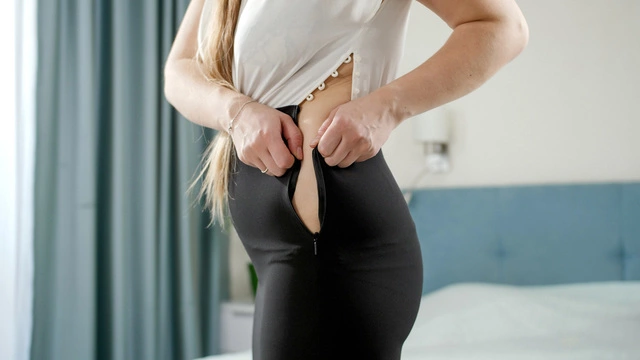It turns out that strict calorie restriction actually prevents our bodies from effectively burning excess fat, which means that weight loss may slow down.
 32508
32508
Why you shouldn’t starve yourself to lose weight
What happens if we reduce our already low calorie intake? Naturally, we expect that from now on we will begin to lose weight even more actively and in a week we will fit into our favorite New Year’s dress. But no – in reality the effect will be the opposite. How diet and metabolism are connected, says Juliet Kellow, a nutritionist from the UK.
When we dramatically cut calories, our body goes into “starvation mode.” This mechanism arose as a defense against hunger – and our body becomes super efficient in using the calories it receives from food and drink.
The body simply protects the remaining fat reserves so as not to die. And in order to provide itself with calories, it begins to actively use muscles instead of fat. This leads to a loss of muscle mass, which in turn reduces your metabolic rate.
The body requires fewer calories to maintain normal functioning, and weight loss slows down. Of course, for a situation of hunger, this is an ideal solution. But if you just want to lose weight, then you will fail along the way.
How many calories do we need to avoid going into “starvation mode”
Unfortunately, there is no clear answer to this question. Since everyone's metabolism is different, the point at which our body starts using muscle instead of fat will also be different for each person.
But most nutrition experts recommend keeping your calorie levels below 1,000 to 1,200 per day if you're dieting on your own. It is also worth keeping in mind that the body does not suddenly “enter” or “exit” the fasting mode, as when crossing state borders. This is a gradual process, so you don't need to panic if you reduce your calorie intake occasionally.
What is the connection between muscle and metabolism?
Metabolic rate—the rate at which the body burns calories—is determined in part by the amount of muscle we have. The more muscle we have, the higher our metabolic rate; The less muscle we have, the lower our metabolic rate. This explains why people with a high proportion of muscles have a higher metabolism.
By the way, not long ago, scientists studied the metabolism of 6,500 people and found that the metabolic rate changes 4 times throughout life. And it doesn’t depend much on age or gender. The number of calories burned is more influenced by a person's total body weight and activity level.
The more muscle you have, the higher your metabolic rate, and the faster you lose weight. That is why it is worth building muscle mass even during a weight loss diet. A good way to do this is to increase the amount of sports in your life.
While aerobic exercises such as jogging, swimming, brisk walking and aerobics help tone muscles and burn fat, strength training or workouts Weight training increases the amount of muscle in your body. And that's good news, because for every extra pound of muscle, your body consumes about 50 extra calories per day.
And of course, continue to monitor your diet
When choosing a diet, take into account not the fashion for any type of nutrition, but the individual characteristics of the body. A nutritionist can help you with this.
If you stayed on a diet for a couple of weeks or months, and then “lost”, then the lost kilograms will quickly return. Sometimes even in excess. Such “swings” harm your figure (stretch marks appear) and your health. Try to choose for yourself the gastronomic lifestyle with which you will be comfortable living for a long time without harm to your well-being.
